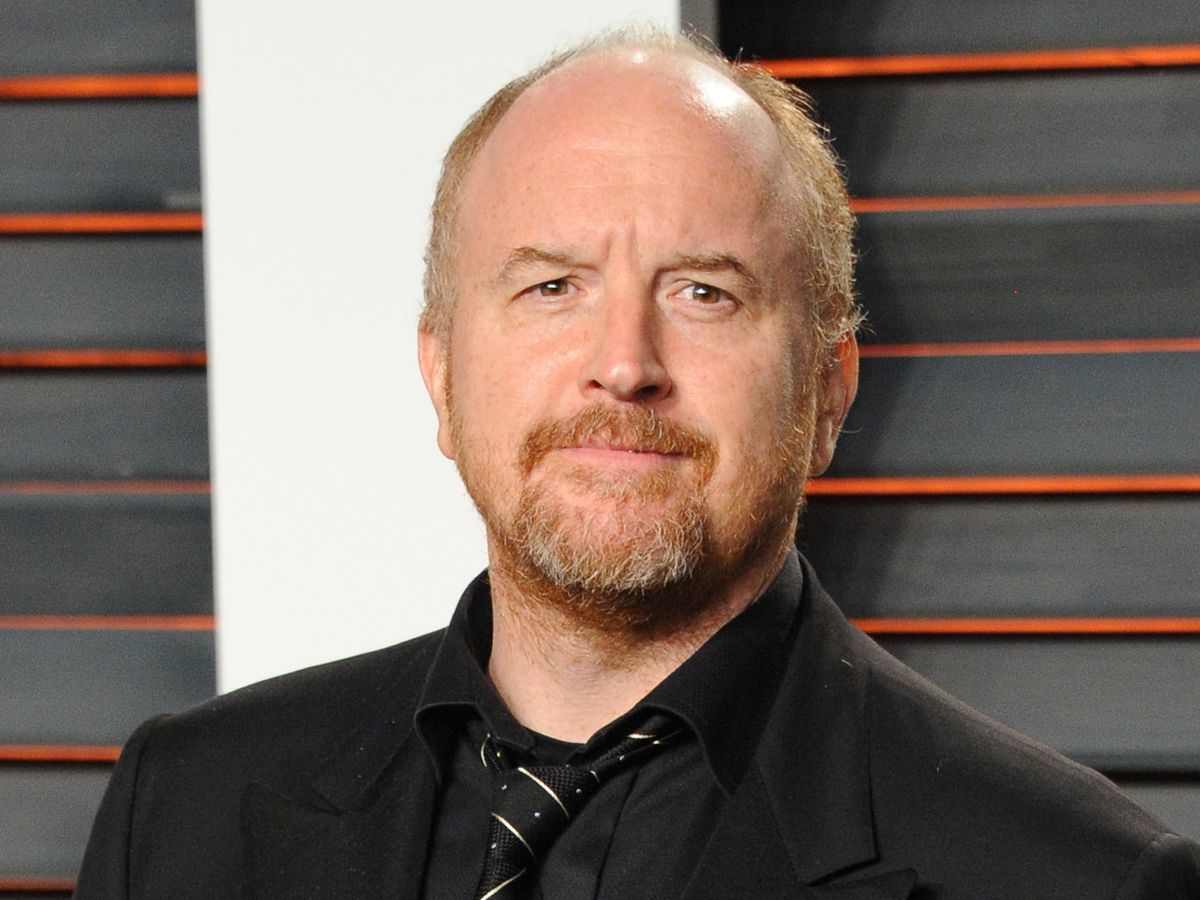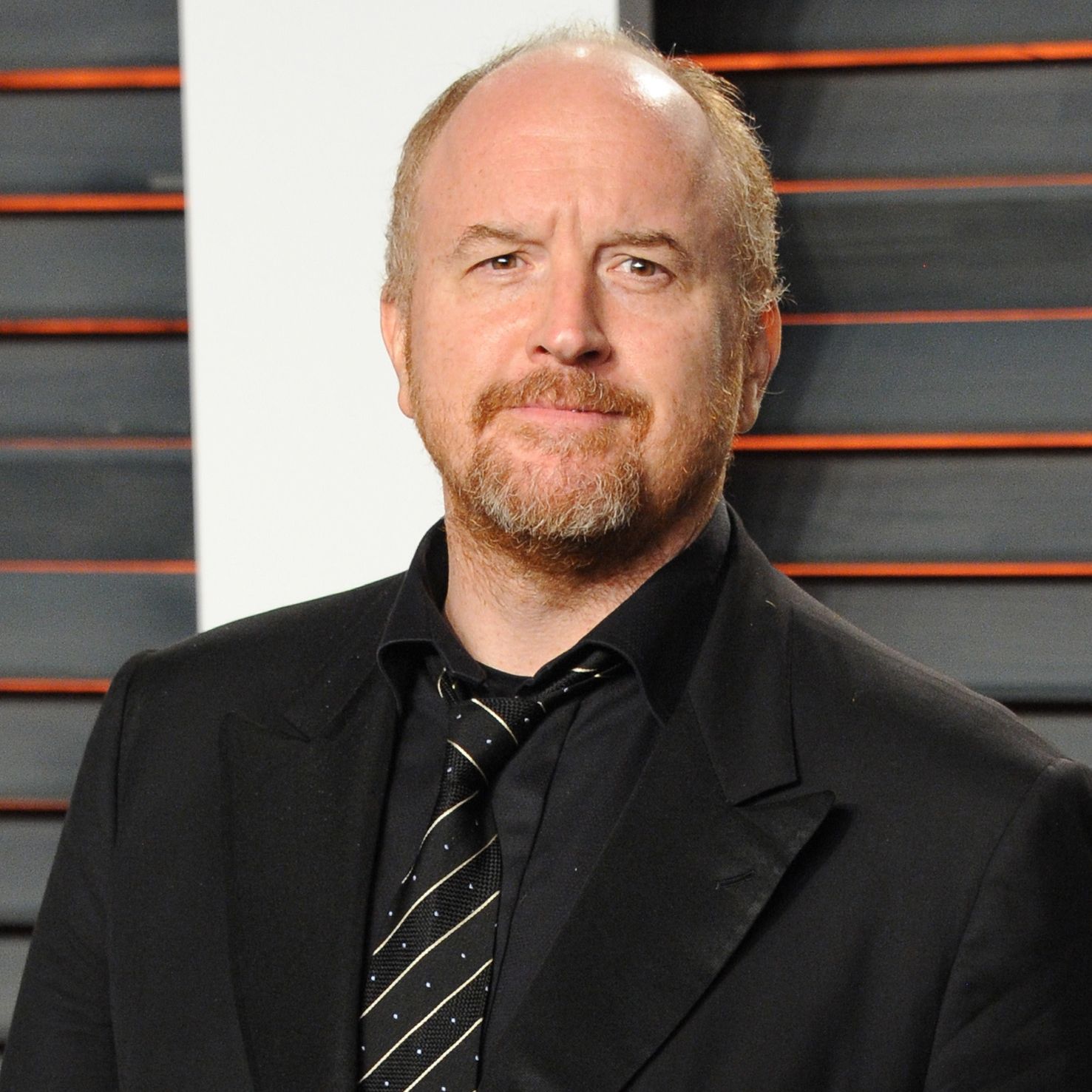A New Documentary Reexamines The Louis C.K. Scandal, 6 Years Later

TORONTO, Ontario — Six years ago, Louis C.K. arrived at the Toronto International Film Festival with the much anticipated “I Love You, Daddy,” just as claims of sexual misconduct against the comedian gained new attention.
The film was sold for $5 million at TIFF, but it was cancelled before it could be released in theatres. After years of speculation, a New York Times article published in November of that year documented the charges of multiple women who claimed C.K. masturbated in front of female stand-up colleagues.
A new documentary screening in Toronto, where C.K.’s downfall began, delves into one of the most contentious #MeToo instances. “Sorry/Not Sorry,” directed by Caroline Suh and Cara Mones and produced by the New York Times, investigates the charges, the ramifications for individuals who spoke out, and C.K.’s resurgence in comedy.
“In the early years, the advice I was given was: Don’t make this movie,” says Suh, director of the Obama-narrated docuseries “Working: What We Do All Day.”
Suh was a big admirer of Louis C.K., and she didn’t see the charges against the comedian as very serious, especially compared to other #MeToo instances, such as Harvey Weinstein and Bill Cosby.
“Honestly, my first thought was, ‘Is it that bad?'” Suh thinks back.
“Sorry/Not Sorry,” which was acquired for distribution by Greenwich Entertainment after its TIFF premiere, reexamines the scandal and its aftermath, especially in light of C.K.’s strong recovery. The comedian admitted “these stories are true” in his 2017 apology, earned a Grammy for best comedy album last year and sold out Madison Square Garden in January.
According to Mones, many people were scared to discuss the delicate problems of consent and power regarding C.K. — and that was a good reason to make the film.
“For many people, this was a grey area. “It felt unusual among all the stories starting to emerge,” Mones adds. “There are numerous questions to investigate.”
The filmmakers were particularly interested in documenting the experiences of the women who went public with their interactions with C.K. Some failed to find success in comedy subsequently, while others were bullied online by his fans. Comedian Abby Schachner, who notes that C.K. did not ask permission before masturbating on the phone with her in 2003, discusses her anxieties about being publicly defined by the story.
“There were questions to be asked and points of view to be expressed.” “And those are the perspectives of the women who came forward,” producer Kathleen Lingo explains. “What happens when a woman speaks her mind?” “What becomes of her?”
Several renowned comedians are interviewed in the film, including Jen Kirkman, who first alluded to some of C.K.’s behavior in a podcast in 2015. The film also stars comedian Megan Koester, “Parks and Recreation” co-creator Michael Schur, and Noam Dworman, owner of New York’s Comedy Cellar.
But it’s also worth noting who isn’t in the film. Louis C.K. does not appear in the film nor react to the filmmakers’ requests for feedback. The directors also claim that practically every notable comic they approached declined to be interviewed.
Simultaneously, C.K. has returned to stand-up comedy, frequently performing material about the incident. In his 2020 self-distributed special “Sincerely Louis C.K,” he opened by asking the audience about their last several years. “Does anyone else get in much trouble?” he asked.
Six years ago, Louis C.K. arrived at the Toronto International Film Festival with the much anticipated “I Love You, Daddy,” just as claims of sexual misconduct against the comedian gained new attention.
Later in the episode, he addressed the misconduct incidents in further detail.
“If you want to do it with someone else, you need to ask first,” C.K. explained. “But even if they say yes, you can’t go ‘Woo!’ and charge ahead.” I’d advise you should check in frequently. It is not always obvious how people feel.”
One of the fundamental questions of “Sorry/Not Sorry” is whether comments like these are sufficient to demonstrate atonement.
“Our intention was to make a film that was very fact-based,” Suh explains. “We don’t want to speculate on why he did this. Simply stating the truth may be beneficial.”
“Sorry/Not Sorry,” due out next year, comes after several setbacks for the #MeToo movement. The filmmakers hope to refocus the discussion.
“It feels like every time there’s a news event, it’s like: ‘#MeToo is failing’ or ‘#MeToo is succeeding,'” says Lingo. “It’s been six years, and I think it’s a truly revolutionary movement.” We’re still in the thick of things.”
SOURCE – (AP)



:max_bytes(150000):strip_icc():focal(635x439:637x441)/louis-ck-1-9577d97e74c34512a6cec5e448be28fa.jpg)




























